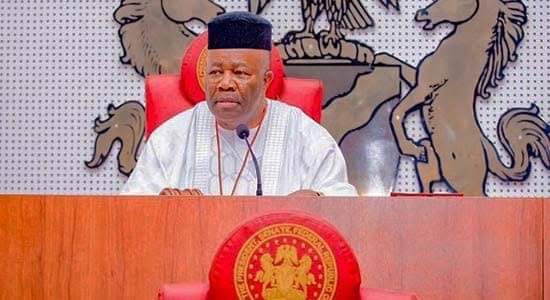EXCLUSIVE: Mass Resignation Rocks Nigerian Army
Information reaching Naija News House says that Mass Resignations Nigerian Army
The Nigerian Army has announced the upward review of Ration Cash Allowance for its personnel.
The RCA takes care of the feeding of Nigerian military personnel in lieu of “central feeding”.
Where the central feeding arrangement is available, the affected personnel are fed centrally.
“RCA is applicable under the following conditions: 1. Military personnel on residential courses at military institutions outside their normal place of abode.
“2. Military personnel on 24-hour guard.
“3. Military personnel on hospital admission in military hospitals.
“4. Military personnel on approved military exercises and operations.
“5. Military personnel on escort or temporary duty lasting 24 hours or more outside their duty station.”
In the signal exclusively obtained by SaharaReporters, the army said the move was sequel to the recent removal of fuel subsidy by the Nigerian government which had caused increment in prices of goods and services across the country.
The signal was dated July 28 and signed by E.E. Emekah, a Major General on behalf of the Chief of Army Staff.
“Sequel to the recent removal of fuel subsidy by the Federal Government of Nigeria, with its attendant rise in the prices of goods and services across the country, the COAS has graciously approved upward review of Ration Cash Allowance (RCA) for troops from One Thousand Naira (N1,000:00) to One Thousand Two Hundred Naira (N1,200.00) with effect from August 2023,” it read.
“Relatedly, requisition for Petroleum, Oil and Lubricants (POL) are to be subsequently calculated as 30 litres of PMS/Vehicle/Day and 50 litres of AGO/Vehicle/Day.
“I am to respectfully add that you forward your sustenance requirements to this Headquarters not later than 15 of every month in line with the new rates for necessary action. Please acknowledge receipt.”
Meanwhile, more soldiers in Northeast Nigeria and other theatres of operation have applied to the Chief of Army Staff for voluntary retirement.
The action comes amid security challenges the military is currently combating in most parts of the country.
The soldiers, drawn from various formations of the army across the country, are all junior cadres who are mostly fighting against terrorists and insurgents.
The Chief of Army Staff has since approved their formal disengagement.
“Reference A conveyed the COAS approval for the voluntary/medical discharge of the above named SNCO and 18 others listed at Annex A. The soldiers are to proceed on terminal leave WEF 15 Jan 24 while their disengagement dates take effect from 15 Feb 24 in accordance with the NA Administrative Policies and Procedures Revised (March 2023),” a signal dated July 28 and signed by one M Haruna, Lieutenant Colonel read.
“Accordingly, I am directed to request formations and units to release all affected soldiers to report at the Headquarters, Garrison, with their unit service documents for documentation.
“All forms of military-controlled items, arms, ammunition, and items of combat kits are recovered from the soldiers prior to their disengagement date and certify that they are properly de-kitted. Please acknowledge.”
The list of the exiting soldiers numbered 19 did not distinguish between those embarking on voluntary retirement and those leaving the army on medical grounds.
However, none of them had attained retirement age or the mandatory years of service.
In the last 12 months, over 1,000 soldiers in Northeast Nigeria and other theatres of operation have resigned from the Nigerian Army.
Some of the affected soldiers who spoke to SaharaReporters had cited loss of interest, intimidation by superiors, corruption in the army, and low morale as their reasons for their actions.
There have been allegations of corruption in the Nigerian Army which some of the soldiers have blamed on their loss of interest.
According to them, the army is the epitome of deep-seated corruption.
They noted that corruption is affecting the fight against the anti-terrorism war in the Northeast.
To stop such a move, army authorities in December 2022 said citing “loss of interest” and “low morale” as reasons for the disengagement by soldiers would no longer be accepted as the basis for approval of voluntary retirement.
Immediate Chief of Army Staff, Lt. Gen. General Faruk Yahaya in a signal had said service personnel discharging at will does not augur well for the Nigerian Army.
The signal had read, “Military service in Nigeria is a voluntary service. Accordingly, able-bodied men and women apply to join to serve the colour after which, they apply for re-engagement or choose to voluntarily discharge. Others in the course of service decide to go on retirement or discharge before their Run Out Date (ROD).
“Admittedly, service in the NA is voluntary and since it’s not a conscript army any personnel could opt to leave at different times. Conversely, considering the resources and efforts that have been put into training most of the applicants which requires that skills and expertise acquired is utilized for the benefits of the system opting out without serving the length prescribed in the colour is inimical to the system.
“Also, in order to ensure the expertise acquired is not easily let off by the service and to recoup the investment made to the benefits of the Nation, Service personnel discharging at will does not augur well for the NA. However, it was observed recently that most at times soldiers come out with various excuses to go on retirement and discharge which are not cogent enough or professional. In light of the forgoing, you are kindly requested to educate troops under command that henceforth, reasons such as loss of interest in military service will no longer be tolerated as basis for discharge.
“This reason is to say the least lame and therefore not accepted. Personnel are expected to explain the reason behind lack of interest e.g. I do not want to fight for the country again, I have not been promoted etc. to enable the service make necessary amendment for the betterment of the system. Accordingly, other cogent reasons could be made for discharge from service otherwise such request would not be granted.”














































